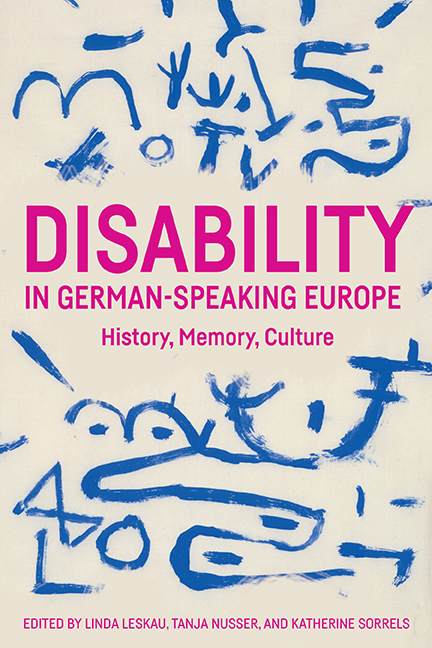2 - “Moral Madness”: Representations of Prodigality, Disability, and Competence in German Legal History
Published online by Cambridge University Press: 16 July 2022
Summary
Introduction
AS THE FIELD of disability studies developed, scholars confronted the challenge of how to apply modern theoretical constructs to premodern contexts: how well do concepts like “impairment” or “disability” map onto premodern worlds? Scholars of the early modern period have called for careful contextualization of the differences in “how disability ‘looks’ and [what it] ‘means’” in sixteenth- and seventeenth-century Europe. In this chapter I use a broad comparative framework and a cultural model of disability to study the changing discourses around disability within different historical contexts. A cultural history approach is particularly well suited to reveal how, in the words of David Bolt and Robert McRuer, “disabled people have been caught up in systems of representation that, over the centuries (and with real, material effects), have variously contained, disciplined, marginalized, or normalized them.” By tracing the development of these systems, scholars have revealed multiple paradigms through which historical societies have made sense of disability. In this chapter I focus on legal sources to show how three paradigms—moral, legal, and medical—competed in the definition and categorization of disability. A legal approach provides a valuable addition to the religious, literary, medical, and public welfare records that inform much of the existing scholarship on early modern disability. As Horn and Frohne observe, the meta-narratives of poverty and marginalization have cast a long shadow over research on premodern disability, thereby limiting our understanding of the wider range of factors that shaped everyday experience. The following analysis focuses on courtroom battles featuring a broad cast of characters in German communities to demonstrate the polyvocal, contentious process of defining disability.
In this chapter I examine the amorphous concept of prodigality (Verschwendung, Prodigalität), a concept that straddled the threshold between notions of immorality and irrationality in southwestern Germany between 1600 and 1900. Originating in Roman law and appearing in Roman-based legal systems into the twentieth century, prodigality was a legal term used to describe people who carelessly mismanaged their property to the point of financial jeopardy (called Verschwender or Prodigus, with “spendthrift,” “wastrel,” or “prodigal” being the closest English equivalents). Prodigals scorned their social duties to their families and the public welfare, and their reckless behavior suggested to contemporaries that they lacked the capacity to control their actions.
- Type
- Chapter
- Information
- Disability in German-Speaking EuropeHistory, Memory, Culture, pp. 44 - 65Publisher: Boydell & BrewerPrint publication year: 2022

